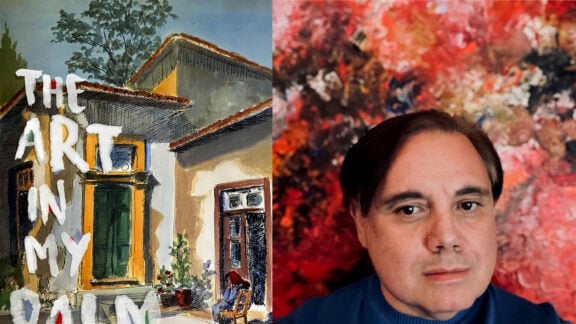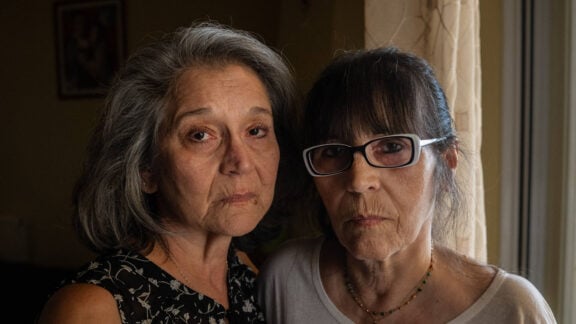Jim Sarris may have been head of Delphi Bank for little more than six months, but he’s certainly not new to the organisation. His new role within the bank came after a successful 16-year run as Head of Corporate Banking, a position that allowed him to have significant insight into the role of Delphi in the community.
I think that face-to-face banking is part of our Greek DNA; we like the interaction, we like the relationship, we like the connection
Delphi, of course, evolved from Bank of Cyprus, where Mr Sarris worked as director of its charity foundation.This kind of charity and social activity has been an integral part of the bank’s operation, a testament to its role as one of the key pillars of the community.
Speaking to Neos Kosmos, Delphi’s new head described the bank’s key goals and his vision in connecting with the third generation of Greek Australians.
What have been your top priorities, since taking on your new role at Delphi Bank?
There have been multiple priorities. The first priority for me is to reconnect with the community and reaffirm that our brand is here to stay.
We might have changed our name, years ago, from Bank of Cyprus to Delphi Bank, but one thing is for sure: we’re still focused on the Greek community and the Hellenic market, that is our niche.
We’re very committed to that. It is not only evident in our 15 branches, which are staffed by Greek-speaking people, but also in the way we project our brand into the community, being sponsors of many community events and organisations.
So, for me, the top priority is reigniting that flame within the community and actively participating in all these community events. The second part of my priorities is more around the business and what the business should look like over the next five years.
We’re in a very dynamic environment. One of the key things for us is to look at our digital space and understand what that looks like in the future and also to invest funds into the right places to ensure that the brand is not here just for tomorrow but for a hundred years and longer.
As you certainly know, the Greek community is not just one thing; it is diverse and comprises many subcultures and different groups. Does this affect your approach?
We break up the community very simply into first-, second- and third -generation; our business is trying to address the needs of each one of these groups individually. Right now, the investment that we put into the business is to address the needs of the second- and third-generations.
We’ve actively gone out recently and surveyed our customer base and our staff to see what those needs may look like and how they fit into the wider banking environment. One of the things we need to appreciate is that the first generation is now ageing; those who migrated to Australia in the 1950s and 1960s are now in a different part of their lives, but we are still committed to meeting their needs; furthermore, we have been fortunate enough to capture a large portion of the second generation.
The greater challenge for us and for every institution is to understand what the third generation looks like. That’s where our investment and our focus will be.
Are you planning to introduce new products to strengthen this relationship with your customers?
Absolutely. I don’t want to start saying the number of ideas, or the different products that we have but I can say that product innovation is a new feature and one of the key initiatives within our business, to not only identify the needs but to start developing the products that are required in the marketplace.
As a business we’ve been quite simple in our product offering and as we move forward we’ll see some changes in the way that we do business.
Our internet banking platform is currently being reshaped; we have invested significant money into that product to ensure that we meet the needs of our future customers. Besides, we recently launched our social media platform which is of course the digital part of our business strategy.
In the modern business environment, digital is not separate, it should form part of your business as should your branch network and your face-to-face relations with your base. This is actually one of the key niches that we’ve carved out in our market; that we are an institution that provides face-to-face banking.
How does this approach apply to businesses who come to you, compared to individual customers who come for a home loan, for instance?
The difference in our business is that we treat them the same; we don’t distinguish customers by what product they select. We value each customer that comes through. So if you have got any loan facility with the bank, you’re going to be appointed a dedicated relation manager.
We think that this face-to-face banking is what’s missing in other institutions, that’s why we brought it back to the table. This approach allows our customers to be able to talk to us and consult us, and it enables us to provide that banking guidance.
There are certain elements of banking that people like to do digitally, at their own leisure, such as transfers to other accounts, or paying bills. But when it comes to sitting down to talk about their next property purchase or their home loan, they really like that face-to-face interaction, they want to be able to talk to people, they want to feel that the bank understands their needs.
I think that it is part of our Greek DNA; we like the interaction, we like the relationship, we like the connection. We put all those three together, in our approach to face-to-face banking and this is the one thing that our customers will say about us, that they like that approach.
You mentioned home loans, which are a significant part of banking activity. As an organisation focusing on the third generation, which are now facing a rise in property prices that makes it hard to enter the property market, what would your advice be?
At this time and point in the market, that is a very complicated question. We have seen the market grow in the past few years and we’re expecting an increase of eight million people in the population by 2050, given the rate of migration.
The main question is whether the property prices will continue to rise and this is not a question for me, as a banker, to answer. But, unfortunately the conversation comes around to housing affordability and what that looks like for the next generation; my advice is to have an active savings plan.
That is the one thing that is embedded within our culture from the first generation; you need to set savings goals on a monthly basis and on a yearly basis to get to the end result and enter the market at whichever point you think that the market is right for you.
We live in interesting times, the cost of living is increasing and an active savings plan is the key to secure the financial future.
What is the role of the banking sector in the current economy?
The banking business is like any other business: we face the same challenges that any business faces, and one of them is innovation. The world is moving a lot faster than it was 20 years ago, and that has affected the banking world. Most people are not doing their transactional banking at a branch, they are doing it digitally. This will affect the biggest changes we’re going to see in the future, specifically around our retail presence and what it looks like in the street. Are our branches going to look the same?Are they going to be smaller? Are they going to be digital hubs? I don’t think there’s one answer; I’d be very naive to say that there’ll be one size that fits all. Every market is different and again that would be driven by the surrounding needs of the population. In different suburbs and different locations, you’ll have different needs, based on the demographics.
How important is social investment in your business strategy?
Social investment and social conscience plays a very big part in our world. From a banking perspective and on behalf of Delphi Bank, I dare say that we’re one of the leading community organisations providing investment back to the community.
I’m extremely proud of all the sponsorships that we’re doing within the community; I’m very proud of Delphi Bank being a sponsor of the Greek Community of Melbourne and Victoria, of the Greek Community of New South Wales, of the soccer clubs and the community groups by geographic region in Greece that we support. I’m proud of everything that we’ve done: from the Hellenic Museum to anything that we think is of value to the community; and I’m also very proud of the participation we’ve had in organisations such as Pronia, Agapi, and Fronditha.
We’re in an ageing community and we need to respect the first generation who came to Australia and provided us with the principles to be as successful as we are today, being one of the most powerful communities in this country. This has long been a very strong trait in our community: showing respect to our elders and seeking guidance and advice from them as well.
Are there any other traits that you see as specifically distinctive of the Greek community?
Family, community and business is what really connects us all. I put family first, because we see a lot of family businesses and we see the connection they have between themselves, and also how families actively participate in the community. The Greeks are a very loyal community for all the right reasons.
I must admit that our business started from zero and evolved to be very strong, thanks to the support and the loyalty that we’ve had from all our core customers from the day we started the bank. I have the luxury of being here from day one and of having a lot of support from our loyal customers, as do a lot of our bankers and I’m humbled by that. This has been an amazing experience in the world of banking for me.
How do you see the Delphi brand evolving in the near future?
For me the Delphi Bank should signify a bespoke, niche player in the Hellenic community. I’d like to think that when anybody of any generation within the Hellenic market thinks about banking, they would give Delphi Bank the opportunity to have that conversation, to understand their needs and see if we can meet them.









